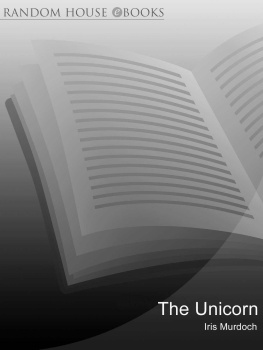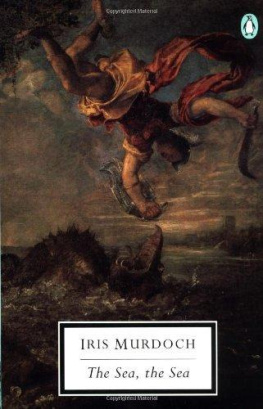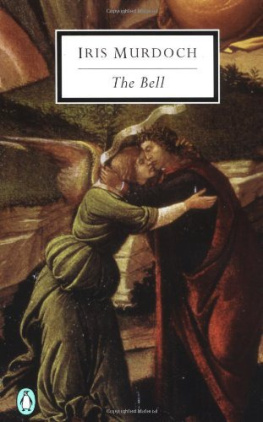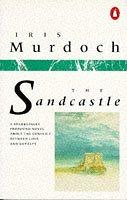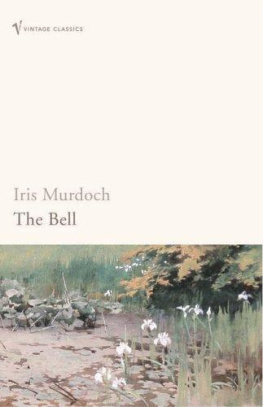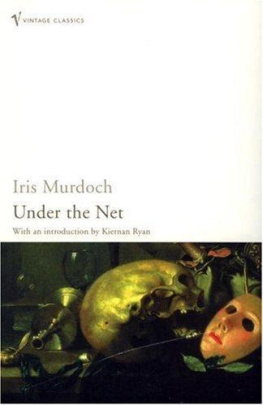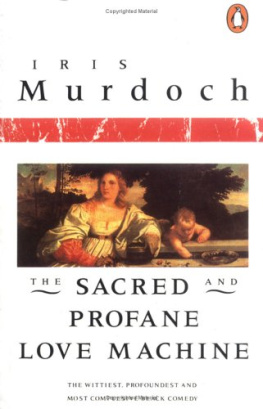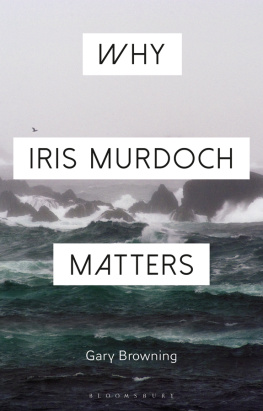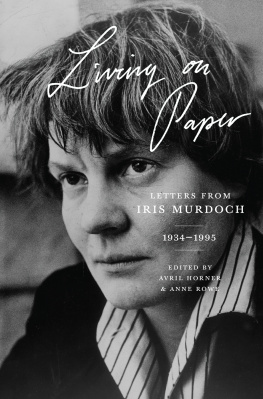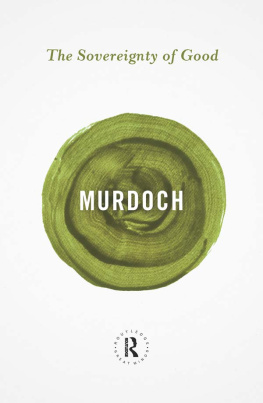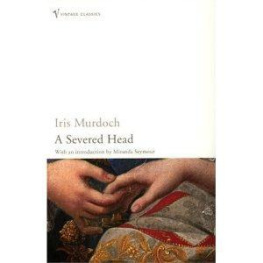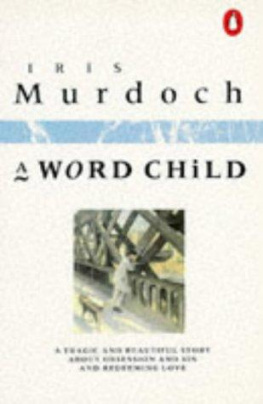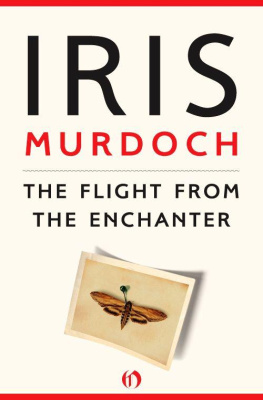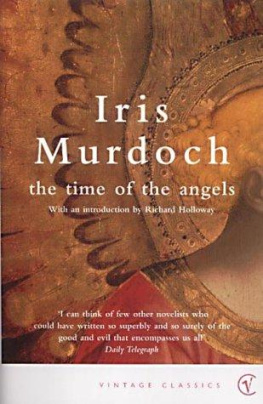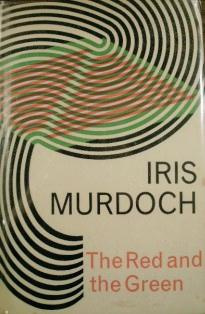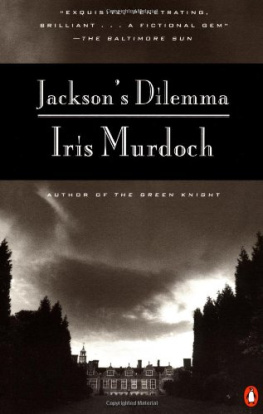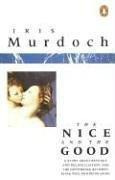Iris Murdoch - The Unicorn
Here you can read online Iris Murdoch - The Unicorn full text of the book (entire story) in english for free. Download pdf and epub, get meaning, cover and reviews about this ebook. year: 1963, publisher: Vantage London, genre: Art / Prose. Description of the work, (preface) as well as reviews are available. Best literature library LitArk.com created for fans of good reading and offers a wide selection of genres:
Romance novel
Science fiction
Adventure
Detective
Science
History
Home and family
Prose
Art
Politics
Computer
Non-fiction
Religion
Business
Children
Humor
Choose a favorite category and find really read worthwhile books. Enjoy immersion in the world of imagination, feel the emotions of the characters or learn something new for yourself, make an fascinating discovery.
- Book:The Unicorn
- Author:
- Publisher:Vantage London
- Genre:
- Year:1963
- Rating:4 / 5
- Favourites:Add to favourites
- Your mark:
- 80
- 1
- 2
- 3
- 4
- 5
The Unicorn: summary, description and annotation
We offer to read an annotation, description, summary or preface (depends on what the author of the book "The Unicorn" wrote himself). If you haven't found the necessary information about the book — write in the comments, we will try to find it.
The Unicorn — read online for free the complete book (whole text) full work
Below is the text of the book, divided by pages. System saving the place of the last page read, allows you to conveniently read the book "The Unicorn" online for free, without having to search again every time where you left off. Put a bookmark, and you can go to the page where you finished reading at any time.
Font size:
Interval:
Bookmark:

THE UNICORN
Iris Murdoch was born in Dublin in 1919 of Anglo-Irish parents. She went to Badminton School, Bristol, and read classics at Somerville College, Oxford. During the war she was an Assistant Principal at the Treasury, and then worked with UNRRA in London, Belgium and Austria. She held a studentship in Philosophy at Newnham College, Cambridge, and then in 1948 she returned to Oxford where she became a Fellow of St Annes College. Until her death in February 1999, she lived with her husband, the teacher and critic John Bayley, in Oxford. Awarded the CBE in 1976, Iris Murdoch was made a DBE in the 1987 New Years Honours List. In the 1997 PEN Awards she received the Gold Pen for Distinguished Service to Literature.
Since her writing debut in 1954 with Under the Net, Iris Murdoch has written twenty-six novels, including the Booker Prize-winning The Sea, The Sea (1978) and most recently The Green Knight (1993) and Jacksons Dilemma (1995). Other literary awards include the James Tait Black Memorial Prize for The Black Prince (1973) and the Whitbread Prize for The Sacred and Profane Love Machine (1974). Her works of philosophy include Sartre: Romantic Rationalist, Metaphysics as a Guide to Morals (1992) and Existentialists and Mystics (1997). She has written several plays including The Italian Girl (with James Saunders) and The Black Prince, adapted from her novel of the same name. Her volume of poetry, A Year of Birds, which appeared in 1978, has been set to music by Malcolm Williamson.
ALSO BY IRIS MURDOCH
Fiction
Under the Net
The Flight from the Enchanter
The Sandcastle
The Bell
A Severed Head
An Unofficial Rose
The Good Apprentice
The Italian Girl
The Red and the Green
The Time of the Angels
The Nice and the Good
Brunos Dream
A Fairly Honourable Defeat
An Accidental Man
The Black Prince
The Sacred and Profane Love Machine
A Word Child
Henry and Cato
The Sea, The Sea
Nuns and Soldiers
The Philosophers Pupil
The Book and the Brotherhood
The Message to the Planet
The Green Knight
Jacksons Dilemma
Non-Fiction
Acastos: Two Platonic Dialogues
Metaphysics as a Guide to Morals
Existentialists and Mystics
Sartre: Romantic Rationalist
Iris Murdoch
THE UNICORNWITH AN INTRODUCTION BY
Stephen Medcalf

This eBook is copyright material and must not be copied, reproduced, transferred, distributed, leased, licensed or publicly performed or used in any way except as specifically permitted in writing by the publishers, as allowed under the terms and conditions under which it was purchased or as strictly permitted by applicable copyright law. Any unauthorised distribution or use of this text may be a direct infringement of the authors and publishers rights and those responsible may be liable in law accordingly.
ISBN 9781409024538
Version 1.0
www.randomhouse.co.uk
Published by Vintage 2000
15 17 19 20 18 16
Copyright Iris Murdoch, 1963
Introduction copyright Stephen Medcalf, 2000
This electronic book is sold subject to the condition that it shall not by way of trade or otherwise, be lent, resold, hired out, or otherwise circulated without the publishers prior consent in any form other than that in which it is published and without a similar condition including this condition being imposed on the subsequent purchaser
First published in Great Britain in 1963
by Chatto & Windus
Vintage
Random House, 20 Vauxhall Bridge Road,
London SW1V 2SA
Vintage Books
Random House, 20 Vauxhall Bridge Road,
London SW1V 2SA
www.vintage-books.co.uk
Addresses for companies within The Random House Group Limited can be found at: www.randomhouse.co.uk/offices.htm
The Random House Group Limited Reg. No. 954009
A CIP catalogue record for this book
is available from the British Library
ISBN: 9781409024538
Version 1.0
TO DAVID PEARS
The first two thirds of The Unicorn seem to me to be among Iris Murdochs best work. The power of the narrative, the readers mere wish to know what happens next, embodies another strong development, from symbol through mystery to revelation. Both intensify from the strangeness of the opening, when Marian Taylor finds herself at an isolated railway station helpless and almost frightened, through the drive which takes her fifteen miles across a landscape which possesses both ones visual and ones symbolic imagination, to Gaze Castle, where the mystery which centres on its mistress, Hannah Crean-Smith, is elaborated without any single solution, until it issues in a revelation, Effingham Coopers vision of the death of self at the point of physical death in the bog. This part of the story reaches its peak after Effinghams rescue, when he sees the three handsome faces of Marian, of Hannah and of Alice Lejour, who has been unrequitedly in love with him for twenty years, as like an icon of the Trinity, and his vision seems to have been perhaps the truth, the very truth, which resided in [Hannah] in a sort of sleeping state and which made round about her the perpetual sense of a spiritual disturbance.
Immediately after this the pace of the narrative changes, as Gerald Scottow, the factor at Gaze, announces that Hannahs husband Peter, who has been absent for the seven years during which Hannahs mystery has built up, is coming home. The mystery is shattered in the remaining third of the book by a headlong series of events, seduction, murder and suicide, which slow down only when Effingham sees, in a counter to the icon of the Trinity, laid out in the drawing room at Gaze in the engraved twilight, as in a picture by Blake the three shrouded dead bodies of Hannah, Peter and Gerald. There is something over hasty in this whole sequence, which reaches its extreme in the next chapter, when Hannahs servant Denis Nolan confesses to Marian that he had murdered Peter Crean-Smith Because of what I saw at that other time. And what I feared for her. It is not even clear what that other time refers to, although the phrase ought to bind the two parts of the story together.
The contrast between the two parts is without much doubt deliberate, even if it has, as I think, been overdone in the second part. In December 1959, two or three years before she wrote The Unicorn, Iris had ended an essay called The Sublime and the Beautiful Revisited by saying that A novel must be a house fit for free characters to live in; and to combine form with a respect for reality with all its odd contingent ways is the highest art of prose. Earlier in the same paragraph she had described the modern novelists quest for form as involving a temptation to imagine that the problem of a novel is solvedas soon as a form in the sense of a satisfactory myth has been evolved, at a moment which any artist both dreads and longs for the moment at which form irrevocably crystallises. This looks like an exact description of the first part of The Unicorn: and the second part is equally well described when she goes on There is then the much more difficult battle to prevent that form from becoming rigid, by the free expansion against it of the individual characters. Here above all the contingency of the characters must be respected. Contingency must be defended for it is the essence of personality. I guess that she was describing here her own experience of writing The Bell, her then most recently published novel (1958), in which form and respect for contingency seem to be effortlessly combined. In the immediately succeeding novels, A Severed Head, An Unofficial Rose, and The Unicorn itself, the battle between the two was always in danger of becoming too self-conscious, with a paradoxical tendency to turn towards a compelled contingency for her characters.
Font size:
Interval:
Bookmark:
Similar books «The Unicorn»
Look at similar books to The Unicorn. We have selected literature similar in name and meaning in the hope of providing readers with more options to find new, interesting, not yet read works.
Discussion, reviews of the book The Unicorn and just readers' own opinions. Leave your comments, write what you think about the work, its meaning or the main characters. Specify what exactly you liked and what you didn't like, and why you think so.

